
A profound sense of national disquiet settled over the United States following the assassination of conservative activist Charlie Kirk, an event that sharply illuminated the escalating tensions within the nation’s political discourse. The incident, occurring amidst an increasingly polarized landscape, prompted immediate and varied reactions from across the ideological spectrum, yet few resonated with the candid, almost bracing, clarity of Bill Maher.
Maher, known for his incisive commentary and willingness to challenge orthodoxies on both the left and right, dedicated significant segments of his HBO program ‘Real Time with Bill Maher’ and his podcast ‘Club Random’ to addressing the tragedy and its broader implications. His remarks, delivered with a characteristic blend of conviction and critical analysis, cut through the noise, offering a stark condemnation of political violence and a robust defense of the very principle of open debate that Kirk embodied.
This in-depth examination delves into Maher’s articulate response, exploring the various facets of his argument, from his unwavering support for free speech to his pointed critiques of those who exploited the tragedy. We will analyze how Maher, alongside guest Ben Shapiro, navigated a moment of intense national grief and division, offering perspectives that underscore the fragility of civil discourse in contemporary American life.
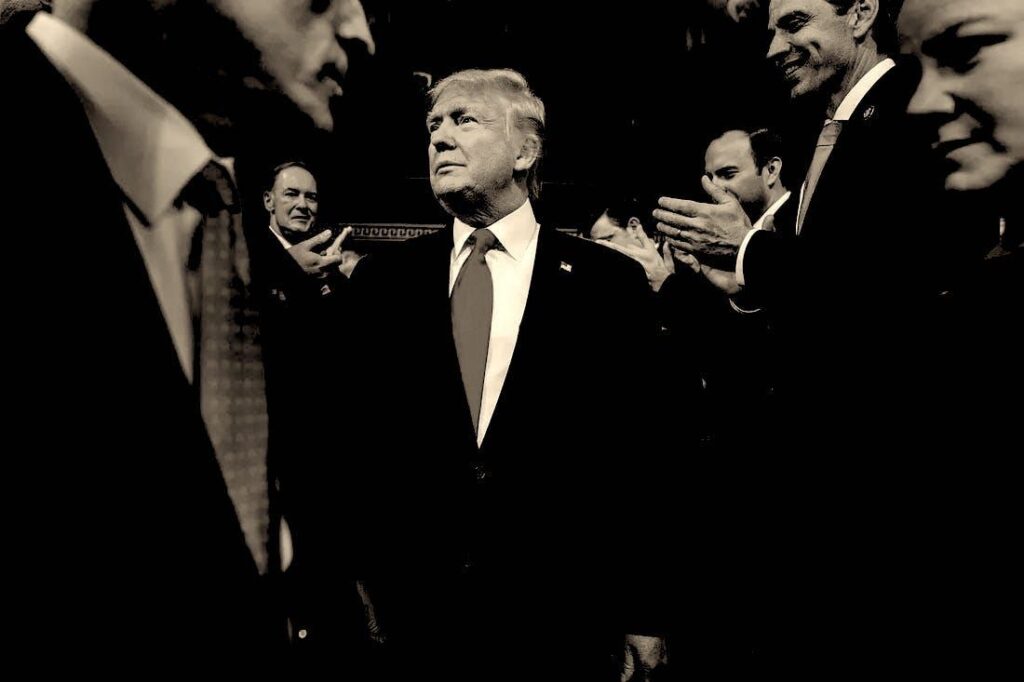
1. Bill Maher’s Immediate Condemnation and Framing of a “Theme Show”
Maher opened ‘Real Time’ acknowledging a “very ugly week in America” marked by “violence of all kinds: political violence, regular violence, a lot of people talking about a civil war.” This somber reflection set the tone for an episode that, while initially planned with a different focus, profoundly shifted in response to the day’s tragic events. The host revealed, “I didn’t realize this was gonna be kind of a theme show because we write our editorial before the week starts, and so it was all about freedom of speech. Then the assassination occurred, so this is turning into a theme show. But it is kind of interesting that this guy was shot.”
The unplanned thematic pivot underscored the gravity of Kirk’s death and its immediate resonance within the national consciousness. Maher’s personal connection, despite political disparities, was also evident. He stated, “I talked to him, I liked him. I like everybody. I talk to everybody that I think… Um, I’m glad I took that approach.” This sentiment highlighted a deeply held conviction in the value of engaging with individuals across the political spectrum, irrespective of ideological alignment. It also hinted at a rare quality in a media landscape often characterized by tribalism and rigid adherence to partisan lines.
Further expressing his personal distress, Maher confided on his podcast ‘Club Random’ to guest Billy Corgan, “Look, I might drink a little more than usual today. Because I don’t know when this is airing, but this is a s— day. A guy who sat there – Charlie Kirk – got shot today, and I can’t stop thinking about it.” This raw, unvarnished emotional display from a figure often perceived as detached or cynical provided a powerful human dimension to his commentary. It underlined the shock and grief that transcended mere political analysis, bringing the personal toll of such violence to the forefront for his audience.
The acknowledgment of Kirk as a “human being” rather than merely a political opponent resonated strongly with Maher’s long-standing commitment to fostering dialogue. His immediate response was not merely a strategic condemnation of violence but a deeply felt reaction to the loss of a life, particularly one engaged in public discourse. This framing established the moral compass for his subsequent critiques, positioning the assassination as an attack on fundamental American principles, rather than just a partisan incident.
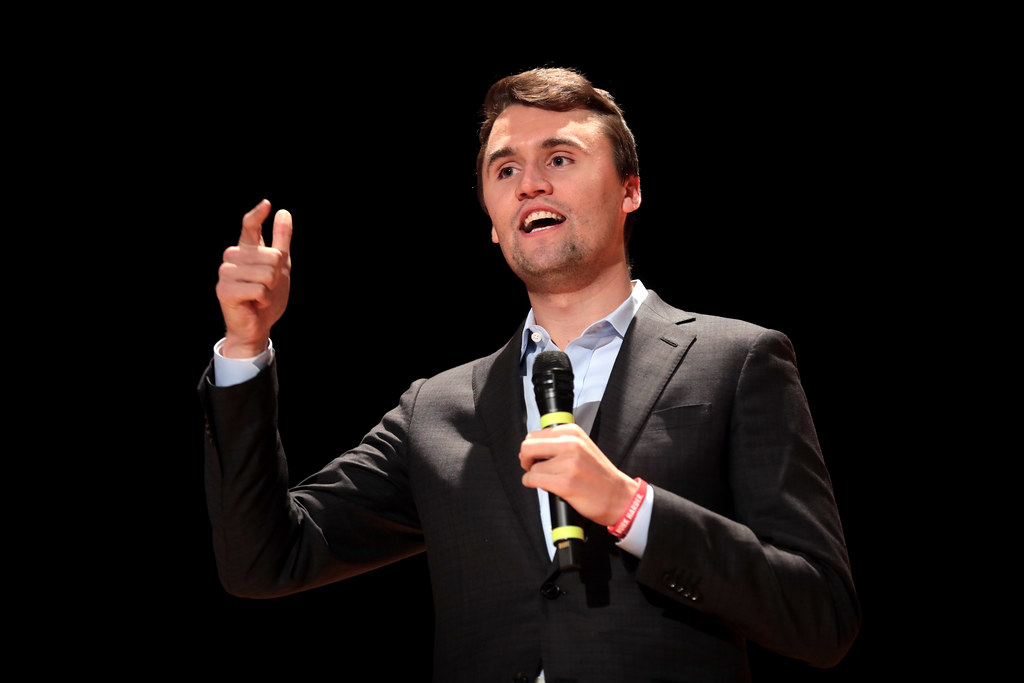
2. The Core Principle: Free Speech and Charlie Kirk’s Legacy as a Debater
Central to Bill Maher’s analysis of Charlie Kirk’s assassination was the profound symbolism of the circumstances surrounding his death. Kirk was, in essence, killed for embodying the very spirit of intellectual engagement and open challenge. Maher poignantly observed, “He was shot under a banner that said, ‘Prove me wrong,’ because he was a debater.” This detail transformed Kirk’s death from a mere act of violence into an assault on the foundational tenet of free expression, where ideas are meant to be tested, not suppressed by force.
The host articulated a chilling, yet increasingly prevalent, societal problem: “To many people, the way to do that… is to just eliminate you from talking altogether.” This statement encapsulated a broader cultural shift, where disagreement is met not with reasoned counter-argument, but with attempts to de-platform, silence, or, in Kirk’s tragic case, eliminate the speaker entirely. Maher’s words served as a stark warning about the erosion of the public square, where the exchange of diverse perspectives is crucial for a healthy democracy.
Ben Shapiro, a close friend of Kirk’s, reinforced this point with a visceral account of the incident. He highlighted that Kirk “was literally in the middle of answering a question and picked up the microphone and was shot in the throat.” This stark image underscored the horrific nature of the crime, illustrating that Kirk was targeted precisely for performing the act of public debate. It transformed the abstract concept of free speech into a tangible, vulnerable reality, brutally cut short in a university setting.
The narrative that emerged from Maher’s show was not merely a lament for Kirk, but a robust defense of the right to speak, even when views are unpopular or provocative. It underscored the premise that the antidote to speech one dislikes is more speech, not violence or suppression. The assassination, therefore, became a tragic emblem of what happens when the principles of open discourse are abandoned in favor of destructive intolerance, pushing the boundaries of what is acceptable in political engagement.
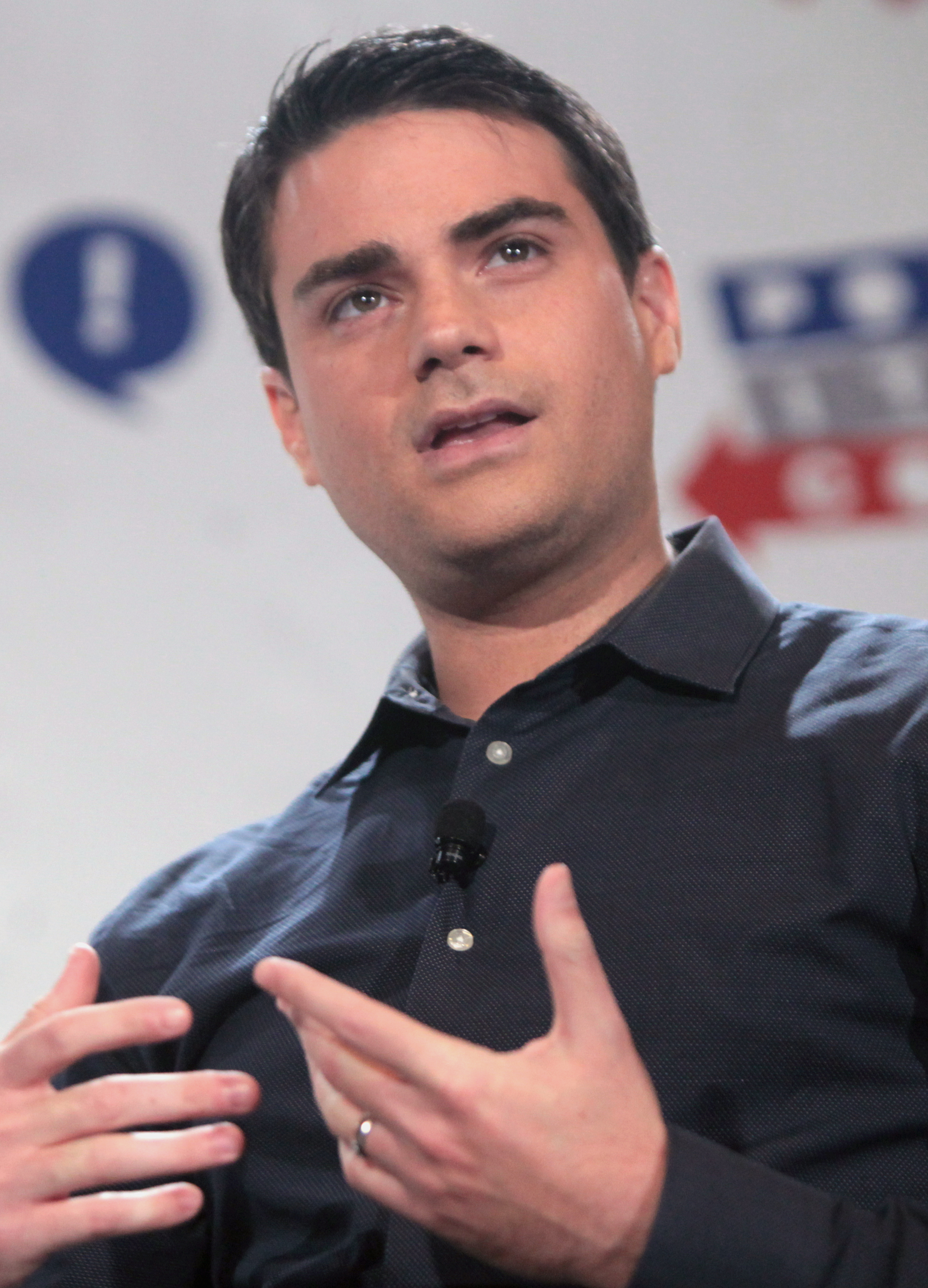
3. Ben Shapiro’s Personal Reflection and the Grave Warning of Normalizing Violence
Ben Shapiro’s appearance on “Real Time with Bill Maher” offered a deeply personal and emotionally resonant dimension to the discussion, moving beyond political analysis to the raw human cost of the tragedy. Sharing his long-standing relationship with the deceased, Shapiro stated, “I knew Charlie for 13 years,” recalling their first meeting when Kirk was a teenager in Palm Beach. He watched Kirk “grow into a man and watched him, you know, get married and have a couple of very young kids,” painting a picture of a life tragically cut short, impacting a young family.
Shapiro emphasized that whatever one thought of Kirk’s specific political views was secondary to the nature of his work. “Whatever you thought of Charlie’s views is irrelevant. The fact is that what he made his living doing and what he actually did quite well… was just going and talking to people on the other side.” This underscored Kirk’s role as a facilitator of dialogue, not merely an ideologue. His profession was founded on engagement with opposing viewpoints, a practice now rendered perilous by an act of extreme violence.
Beyond the personal grief, Shapiro issued a chilling warning about a dangerous cultural shift. He declared, “We do have a serious problem in this country with people who believe that violence is the proper response to speech, and that does skew young.” This observation pointed to a troubling erosion of norms, suggesting a growing acceptance of physical force as a legitimate tool in ideological disagreements. It highlighted a fundamental threat to the peaceful exchange of ideas, which underpins any functional democratic society.
For Shapiro, the assassination represented a significant downturn in the nation’s character. He expressed profound sorrow, stating, “I thought that that’s not what America is or what it should be about, and we’ve come to some place incredibly dark in our nation’s history. And, you know, I weep for the country. I weep for Charlie. It’s, it’s horrific.” This stark assessment resonated as a desperate plea for a return to civility and a rejection of violence, signifying a potential turning point toward an even more fractured national identity.
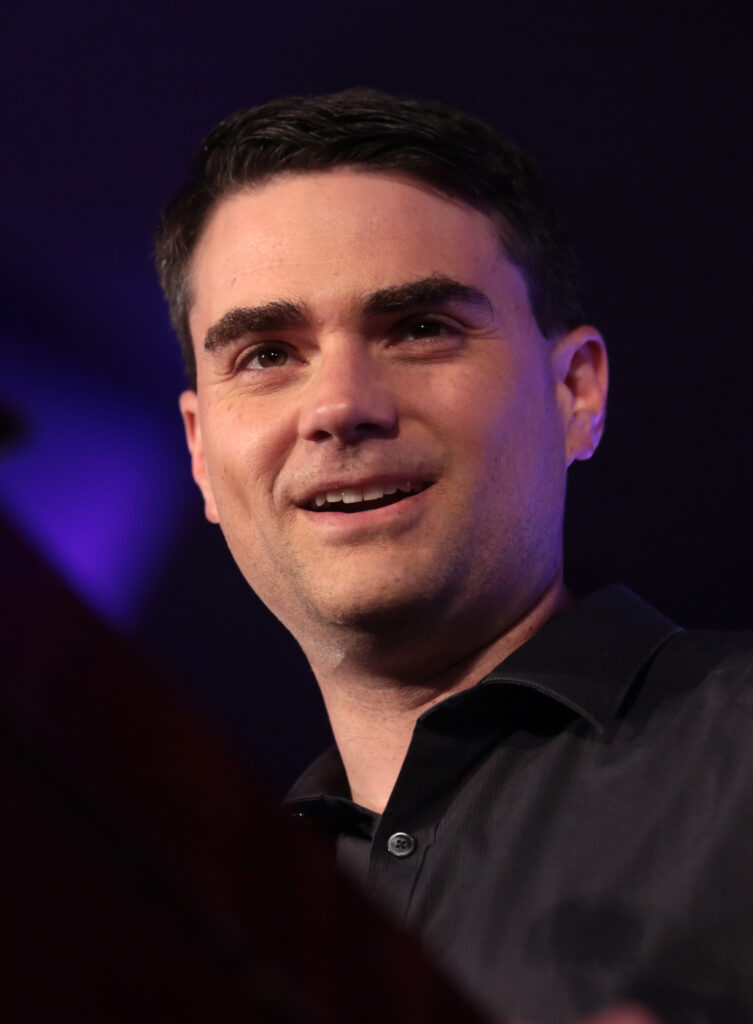
4. The Alarming Trend: Gen Z’s Tolerance for Violence in Response to Speech
During his impassioned discussion, Ben Shapiro introduced a statistic that painted a particularly grim picture of the nation’s future, highlighting a deeply concerning trend among younger demographics regarding political discourse and violence. He noted that recent polls indicated a disturbing proportion of Generation Z held views that normalized violence in response to speech. Specifically, Shapiro stated, “What the polls tend to show is that of Gen Z, only 58%… believes that there is no excuse for violence in response to speech, meaning that 42% believe that there are some times that… violence ought to be a response.”
This revelation served as a stark, empirical substantiation of Shapiro’s broader argument about the growing cultural acceptance of political violence. The fact that nearly half of a rising generation could potentially condone violence as a legitimate reaction to spoken words represents an existential threat to the very foundations of democratic society, which relies on the peaceful, albeit sometimes contentious, exchange of ideas. Such a statistic suggests a dangerous departure from historical norms of civil engagement.
Shapiro understandably labeled this trend as “deeply terrifying,” underscoring the personal relevance by mentioning his own decade-long need for “round-the-clock security.” This personal detail highlighted that the threat of violence is not an abstract concept for those in public life, but a daily reality. The assassination of Charlie Kirk, therefore, was not an isolated incident but a brutal manifestation of a deeply entrenched and worsening societal problem, particularly among the cohorts poised to shape future political landscapes.
The implications of such widespread tolerance for violence are far-reaching, potentially leading to an environment where public debate is stifled by fear, and the marketplace of ideas is replaced by an arena of intimidation. If a significant portion of the populace believes that physical harm is a viable tool to counter speech, then the space for disagreement, nuance, and democratic deliberation inevitably shrinks, pushing the nation further down a path of division and potential unrest.
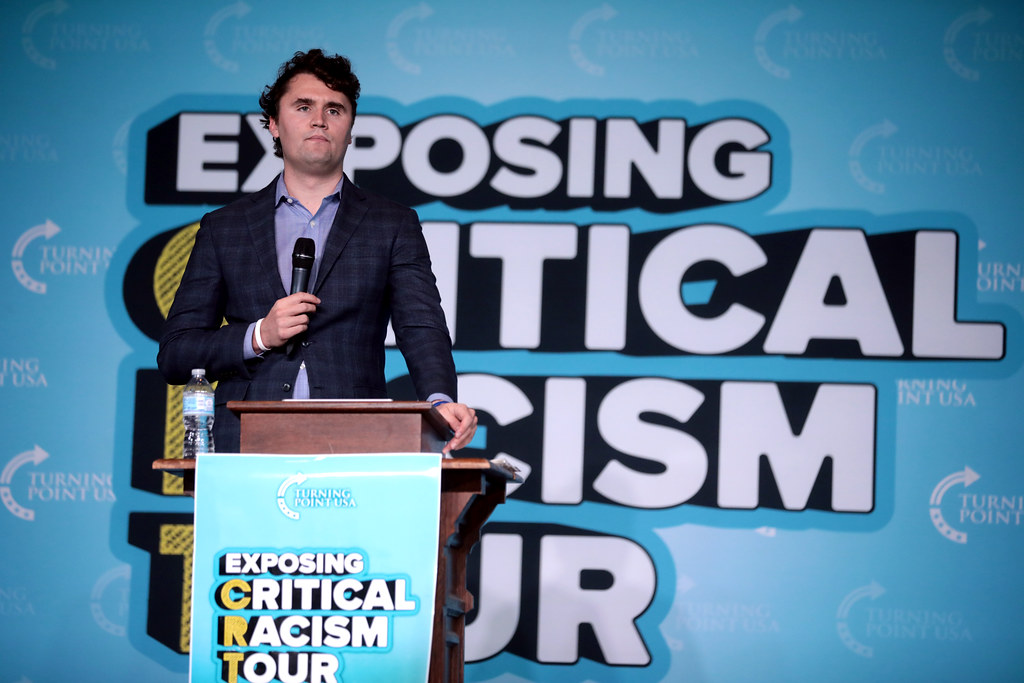
5. Maher’s Scathing Critique of “Ghouls” Who Mocked or Justified the Killing
Bill Maher did not mince words when addressing the reprehensible reactions that emerged in some corners of social media and online discourse following Charlie Kirk’s assassination. He unleashed a forceful condemnation of those who celebrated or justified the act, unequivocally stating, “The people who mocked his death or justified it, I think, ‘You’re gross. I have no use for you.’” This direct and unvarnished rebuke cut through the political niceties, branding such responses as morally repugnant and beyond the pale of acceptable human conduct.
Maher extended his disdain to those who sought to escalate tensions by declaring a broader conflict, adding, “The people who are saying now we’re at war, I have no use for you.” This statement reflected his consistent stance against the radicalization of political discourse, urging a rejection of maximalist rhetoric that could further incite violence. His position underscored a call for restraint and a refusal to legitimize the extreme fringes that exploit tragic events for ideological gain.
The context highlights that Maher’s honesty on this issue was “rare in Hollywood” and “refreshing to hear someone with his platform say out loud what so many Americans are thinking.” This recognition of his courage and integrity stemmed from his consistent track record of warning “the left that their rhetoric is toxic and counterproductive.” His past willingness to push back on labeling figures like Trump as “Nazi” and even having dinner with him lent considerable credibility to his current condemnation, distinguishing him from those whose moral stances might appear opportunistic.
Maher’s unwavering stance against the celebration of political violence, regardless of the victim’s political affiliation, positioned him as a vital voice for civility in an increasingly uncivil age. His insistence on basic human decency, even for those with whom he fundamentally disagrees, served as a powerful reminder of the imperative to uphold shared values that transcend partisan divides. This moral clarity, particularly in a moment of profound national shock, resonated deeply with many who yearned for a return to a more principled public discourse.
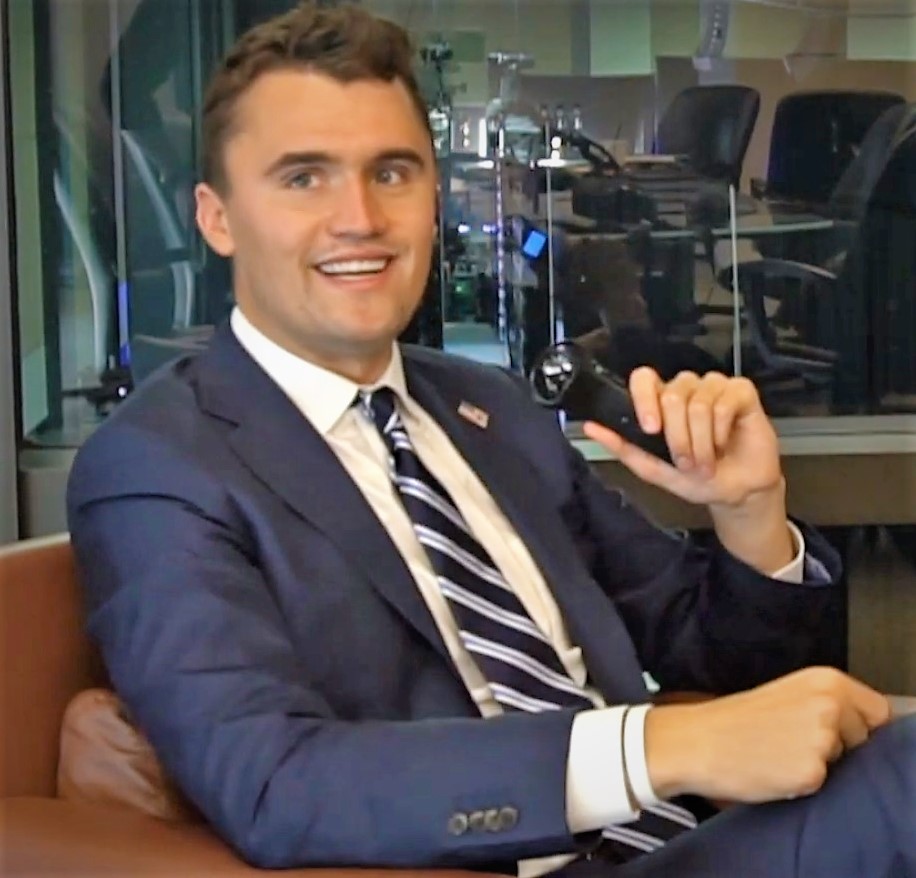
6. The Nuance and Controversy of Maher’s “Both Sides” Argument
While Bill Maher earned considerable praise for his unequivocal condemnation of those who celebrated Charlie Kirk’s death, his analysis also ventured into more contentious territory with his articulation of the “both sides” argument. He attempted to reframe the core conflict, asserting, “I think the real war is not between left or right. It’s between the people on both sides who want a war and the people who don’t.” This perspective aimed to transcend traditional partisan divisions, suggesting a more fundamental struggle within the national psyche, irrespective of specific political ideologies.
This particular framing, however, was not without its critics. As the context reveals, “his instinct to retreat into the tired ‘both sides’ trope misses the point. The real threat isn’t some abstract culture of division — it’s the left itself, which has made clear it’s at war with anyone who dares to disagree with them.” This critique suggested that Maher’s attempt at even-handedness, while perhaps well-intentioned, risked diluting the specific culpability of certain ideological factions perceived to be more actively promoting hostility or justifying violence in this particular instance.
Maher later nuanced his position, acknowledging the pervasive nature of the problem. Discussing the role of social media, he echoed the state governor’s sentiment that “social media is a cancer,” and added, “when you read some of the comments from people, they really are in such a bubble that they don’t understand that it’s happening on both sides.” He continued, “I think the only way this starts to get better is if both sides admit, ‘OK, let’s not have this debate about who started it. Let’s not debate about who’s worse because, plainly, both sides do it now.’ And the right has done it too. A lot.” This revision suggested a recognition of culpability across the political spectrum, while still emphasizing the need for mutual accountability.
The “both sides” argument remains a complex and often debated aspect of contemporary political commentary. While it seeks to foster a sense of shared responsibility and avoid partisan finger-pointing, it can also be perceived as obscuring specific aggressions or imbalances of power. Maher’s engagement with this idea, both in its initial formulation and subsequent refinement, reflected the challenging task of diagnosing the root causes of political violence without inadvertently excusing problematic behavior from any quarter. His willingness to navigate this difficult terrain underscored the nuanced, often uncomfortable, nature of his public discourse.
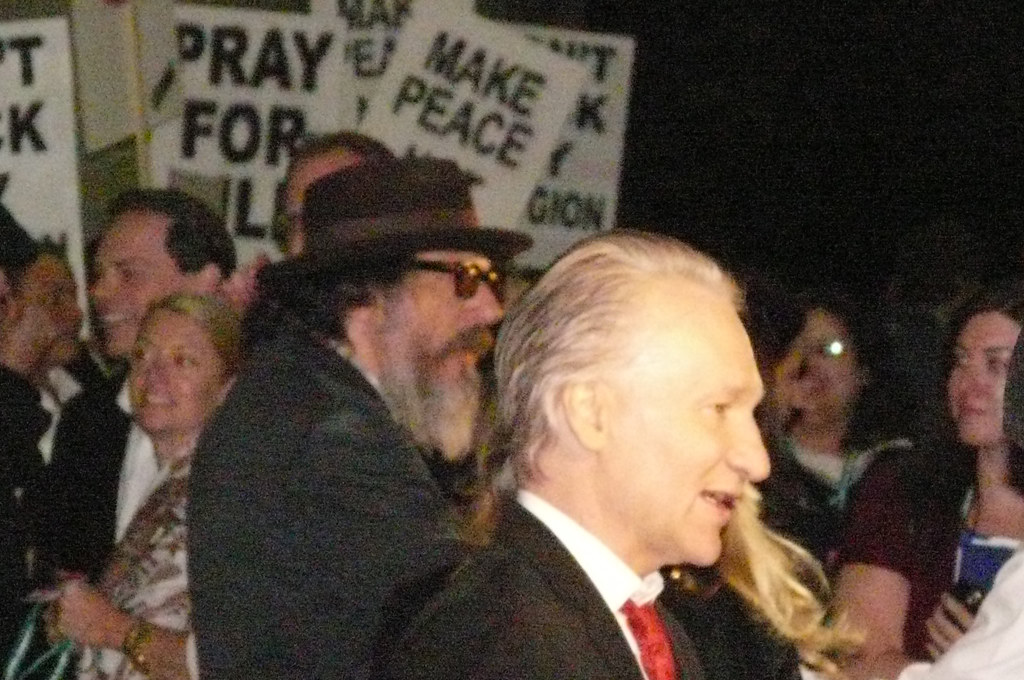
7. Maher’s Stance as an “Old-School Liberal” and Critique of the Modern Left
Bill Maher, a figure consistently challenging both sides of the political spectrum, frequently clarifies his ideological grounding, reiterating his identity as an “old-school liberal.” This self-definition is crucial to understanding his commentary on Charlie Kirk’s assassination, as it frames his critiques of what he perceives as the “far left’s dominance over modern progressive politics.” His perspective suggests a commitment to foundational liberal tenets, such as free speech and open dialogue, that he believes are increasingly under threat from within his own ideological camp.
Maher has not shied away from directly confronting what he sees as the counterproductive tendencies of this modern left. He famously stated to his “woke friends,” “we voted for the same person – you’re just why she lost,” a pointed remark suggesting that the rhetoric and tactics of the far left alienate potential allies and hinder broader political objectives. This stance is rooted in a belief that effective political engagement requires pragmatism and a willingness to transcend ideological purity tests for the sake of achieving common ground or, at the very least, maintaining civil discourse.
In his analysis of the post-assassination climate, Maher drew a stark contrast between what he observed as the willingness of conservatives to engage in dialogue and the perceived insularity of parts of the left. He asserted that conservatives, or “right-wingers,” are generally more open to conversation, stating, “Say what you want about right-wingers, but they’ll talk to you.” Conversely, he characterized segments of the left as exhibiting an attitude of disengagement, noting, “The left has more of a, ‘I won’t talk to you. You’re deplorable. I can’t break bread with you.’”
This distinction underpins Maher’s plea for greater understanding and less ideological rigidity. For him, disagreement does not automatically negate shared humanity. Reflecting on his interactions with Kirk, he noted, “He’s a human being. He’s not a monster,” and further generalized, “I liked him – I like them all. They’re all nice people when you meet them in person.” This sentiment is central to his “old-school liberal” ethos, prioritizing personal connection and respectful engagement over the vilification of political opponents, even in the face of profound ideological differences.
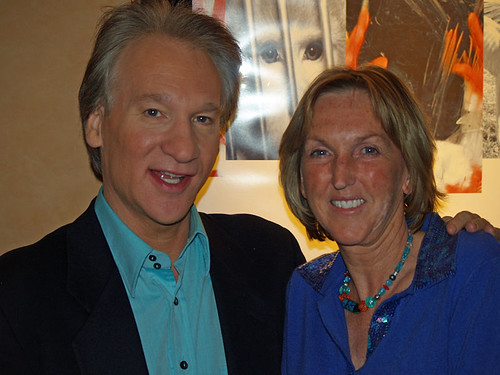
8. The Declining Art of Dialogue: Maher’s Observation on Engagement
Building on his “old-school liberal” framework, Bill Maher frequently laments what he perceives as a significant decline in the art of political dialogue and engagement in contemporary America. His long-standing practice of hosting guests from across the political spectrum on his shows, including figures like Charlie Kirk, is a testament to his belief in the necessity of direct, unmediated conversation, even when views clash dramatically. This approach stands in stark contrast to the increasing tendency in public life to retreat into ideological silos.
Maher’s frustration with the growing unwillingness to engage with opposing viewpoints is palpable. He has emphatically argued that for society to function, “unless people get it through their thick f*cking skulls, you’re going to have to talk to people.” This raw, unvarnished statement reflects a deep concern that the capacity for civil exchange is being replaced by an impulse to simply ignore, de-platform, or, tragically, silence those with whom one disagrees. The assassination of Charlie Kirk, a debater by profession, tragically underscored this chilling trend.
This disengagement often leads to a profound lack of understanding, fueled by social media echo chambers. Maher echoed a state governor’s sentiment that “social media is a cancer,” observing that when one reads online comments, “they really are in such a bubble that they don’t understand that it’s happening on both sides.” Such insularity fosters an environment where empathy is diminished, and caricatures replace genuine understanding, exacerbating political polarization and making constructive solutions increasingly elusive.
Maher’s commitment to open conversation extends even to those whose opinions he finds “bonkers.” He reflected on having hosted over 200 guests, estimating that “at least a quarter of them say something that is full on bonkers, in my view.” Yet, he maintains that unless an individual espouses truly egregious views, such as being a “proud Nazi” or an “actual cannibal,” the imperative is to “get over yourself and talk to these people.” This philosophy underscores his conviction that dialogue, however uncomfortable, remains the only viable path towards navigating complex societal disagreements and fostering a more resilient public square.
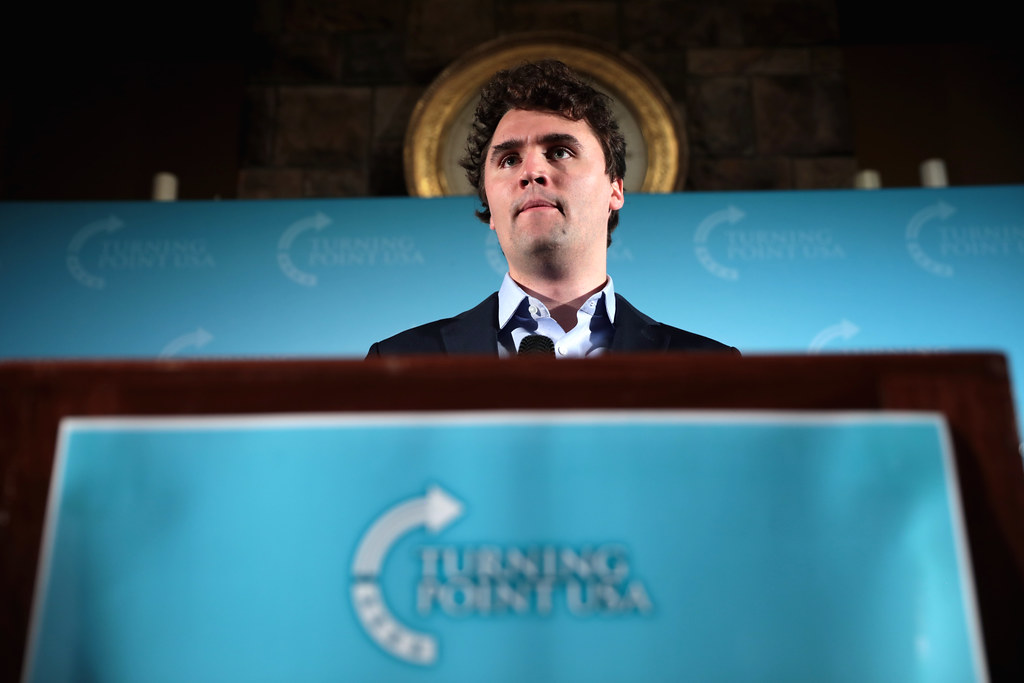
9. The Fractured National Climate and Congressional Discord
Charlie Kirk’s assassination cast a stark light on a national climate already fraught with tension and division. Bill Maher’s initial assessment of the week as “very ugly in America” provided a sobering overview of a nation grappling with “violence of all kinds: political violence, regular violence, a lot of people talking about a civil war.” This sentiment captured the pervasive unease and deep societal fractures that had become increasingly apparent in the country, long before the tragic events unfolded.
Further illustrating this profound polarization, Maher recounted a disturbing scene in Congress following Kirk’s death. Colorado Representative Lauren Boebert stood to call for a silent prayer, only to then defiantly scream, “No! Silent prayers get silent results.” This provoked an immediate and equally furious reaction from Democrats, who began “screaming at her that there was a school shooting in her state.” The incident became a visceral demonstration of how deeply entrenched partisan animosity has become, to the point where even a moment of collective solemnity can devolve into acrimonious ideological combat.
This congressional exchange served as a microcosm of the wider societal breakdown in civility and the inability to find common ground, even in the face of shared national grief. It highlighted how political discourse has deteriorated to a level where accusations and counter-accusations supersede any genuine attempt at empathy or unity. Such moments underscore the fragility of democratic institutions when basic respect and the capacity for shared mourning are eroded by relentless partisan warfare.
Maher’s acerbic observation that “so far, the civil war is not very civil” was a poignant, albeit darkly humorous, commentary on this state of affairs. It reflected the reality that the talk of a “civil war” was not merely hyperbole but a palpable undercurrent of national anxiety, fueled by escalating tensions and a seemingly intractable inability for different factions to coexist peacefully. The events surrounding Kirk’s death, from the act itself to the public and political reactions, brought these simmering conflicts to the forefront, challenging the very notion of a unified American identity.
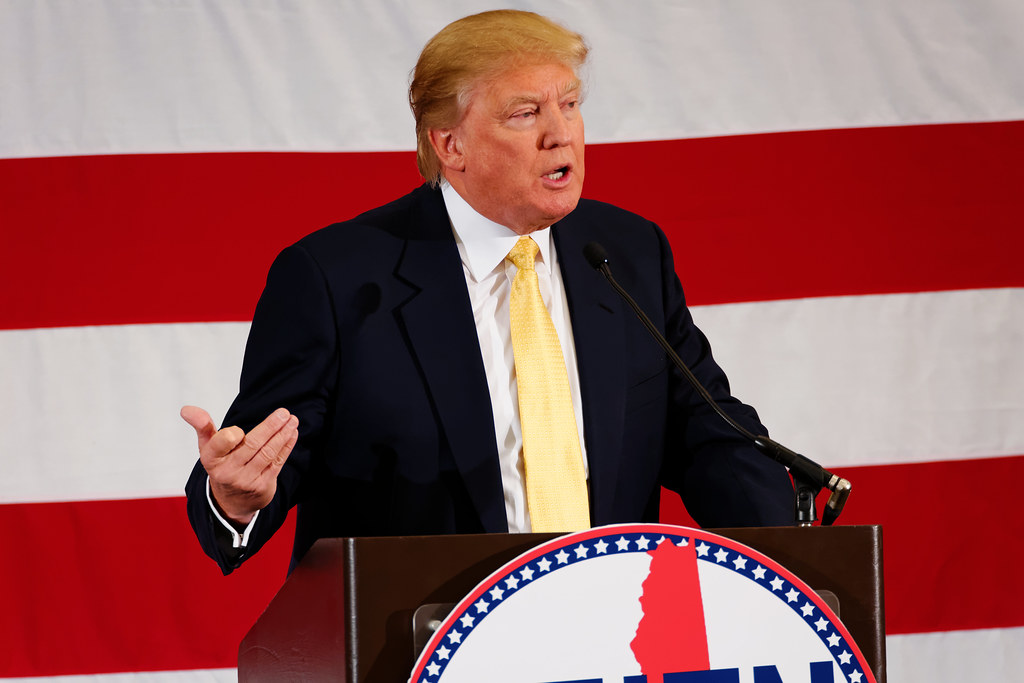
10. President Trump’s Response: Grief, Condemnation, and a Defiant Stance
In the wake of Charlie Kirk’s assassination, former President Donald Trump promptly issued a statement on Truth Social, expressing profound grief and admiration for the conservative activist. His message conveyed a deep personal connection, stating, “No one understood or had the Heart of the Youth in the United States of America better than Charlie. He was loved and admired by ALL, especially me, and now, he is no longer with us.” This tribute, which included sympathies to Kirk’s “beautiful wife Erika, and family,” underscored the significant role Kirk played within the conservative movement and Trump’s personal estimation of his impact.
Beyond his initial expression of sorrow, President Trump further indicated his intention to honor Kirk posthumously, announcing on Thursday that he would award him the Presidential Medal of Freedom. This gesture highlighted the symbolic importance Trump placed on Kirk’s contributions to public discourse and conservative youth engagement. Such a high civilian honor would cement Kirk’s legacy within a pantheon of individuals recognized for their significant service or achievements to the United States.
However, Trump’s response also included a characteristic defiance regarding calls for national unity. When asked on Fox & Friends about how to “fix this country” and “come back together” following the political divide, his answer was unequivocally uncompromising. He recited his own words, “‘What are you going to do to bring the country together?’ And he said, ‘I know this is going to get me in trouble, but I could care less.’” This statement signaled a rejection of traditional political pleas for bipartisan reconciliation, suggesting a focus on his own political convictions rather than seeking broad consensus.
Maher succinctly captured the essence of Trump’s posture, noting, “He’s a different kind of cat. His message is, ‘Let the healing stop.’” This provocative interpretation suggested that Trump’s approach, particularly in a moment of national tragedy, was not about soothing divisions but about reinforcing his base and maintaining a confrontational stance. His reaction, therefore, mirrored the deeply polarized environment, offering a response that was both a lament for a fallen ally and a continuation of his distinctive, often divisive, political narrative.

11. The Kimmel Controversy: Accusations, Suspension, and Market Accountability
The ripple effects of Charlie Kirk’s assassination extended beyond political commentary to the realm of late-night television, culminating in a significant controversy involving host Jimmy Kimmel. ABC made the decision to suspend ‘Jimmy Kimmel Live!’ indefinitely after Kimmel used his monologue to accuse conservatives of exploiting Kirk’s murder. This drastic action underscored the heightened sensitivity and potential for severe repercussions when public figures are perceived to be misrepresenting facts or inflaming partisan tensions during moments of national tragedy.
Kimmel’s controversial remarks centered on the assertion that “the MAGA gang is desperately trying to characterize this kid who murdered Charlie Kirk as anything other than one of them, and doing everything they can to score political points from it.” However, this claim was quickly rebutted by factual information, which identified Tyler Robinson, Kirk’s killer, as “a clear leftist wrapped in trans ideology who hated Charlie Kirk and everything MAGA stood for.” The stark divergence between Kimmel’s narrative and documented facts fueled a swift and strong backlash, drawing criticism not only from viewers but also from station affiliates.
The subsequent suspension was notably not a result of government censorship but rather a consequence of market forces and accountability. A coalition of station owners, including major groups like Nexstar and Sinclair, determined that Kimmel’s program “no longer worked for their communities,” citing concerns over public trust and advertising revenue. This commercial decision, rather than a political mandate, ultimately led to ABC and its parent company, Disney, pulling the plug. It demonstrated that in a competitive media landscape, affiliates possess the power to reject content that they believe damages their reputation or alienates their audience.
Furthermore, some analyses suggested that ABC’s decision was influenced by the potential for legal action. As Bill Mitchell wrote on X, “This was a massive defamation suit waiting to happen and ABC was trying to cut it off at the pass.” This perspective highlights that beyond ethical considerations, the financial and legal risks associated with disseminating demonstrably false information about a politically charged event can have severe consequences for media organizations. It reinforces the idea that “speech comes with responsibility,” and that public figures are not immune to accountability for their statements.
Ultimately, Kimmel’s suspension was portrayed as a triumph of accountability and a reflection of public fatigue with partisan commentary that distorts reality. Critics argued that the market pushed back against a host perceived as repeatedly exaggerating or smearing political opponents. In a conclusion that resonated with many, it was declared that “For once, the punishment fit the offense. In the end, Charlie got the last laugh,” emphasizing the weight of the consequences for public figures who fail to uphold journalistic integrity and respect for truth.
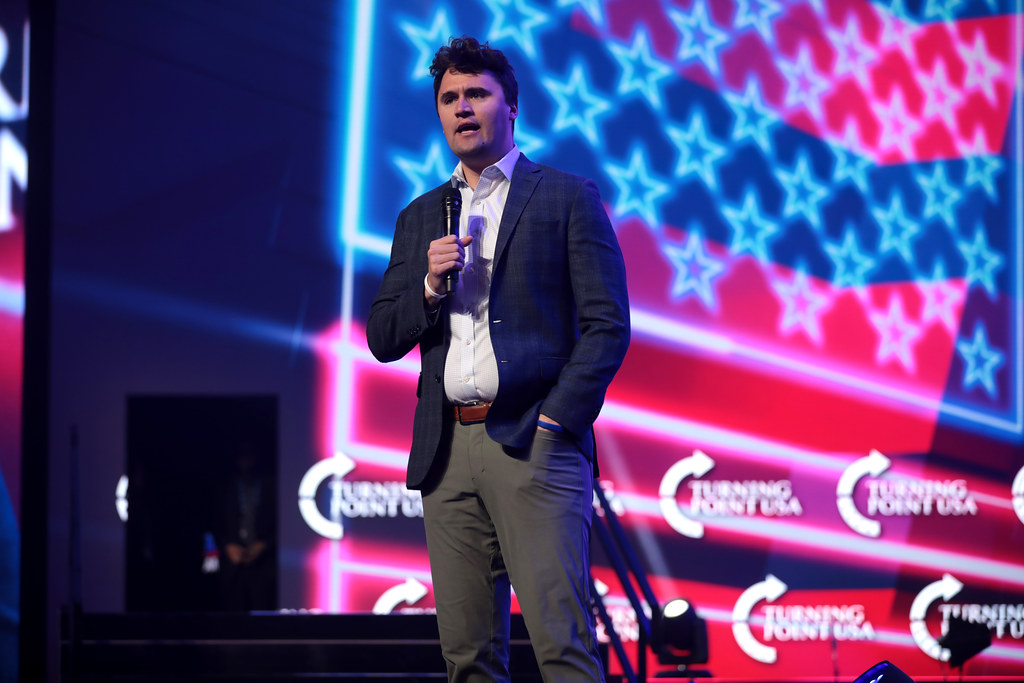
12. The Escalating Reality of Political Violence in America
Charlie Kirk’s assassination, while a singular tragedy, must be understood within the broader, increasingly alarming context of rising political violence across the United States. This somber incident served as a stark reminder that the rhetorical battles dominating the airwaves and social media increasingly risk spilling over into physical confrontations, posing a profound threat to the nation’s democratic foundations. The very fabric of civil society is strained when ideological disagreements manifest in acts of lethal aggression.
The context reveals a disturbing pattern, noting that Kirk’s shooting occurred “just months after the assassination of Minnesota lawmaker Melissa Hortman and her husband,” an event that shocked the political establishment. This was further compounded by “the shooting of a state senator and his wife,” and the “firebombing of Pennsylvania Governor Josh Shapiro’s residence.” These incidents collectively paint a grim picture of a country where public service and political engagement are becoming increasingly perilous, and where the lines between political rhetoric and violent action are dangerously blurred.
Bill Maher’s opening monologue, delivered in the immediate aftermath of Kirk’s death, encapsulated this profound national anxiety. His observation that “a lot of people talking about a civil war” highlighted the pervasive sense of unease that had settled over the country. This sentiment, though perhaps hyperbolic, reflected a deeply felt fear among many Americans that the escalating animosity and division could indeed lead to wider, more devastating conflicts if left unchecked.
The grim statistics shared by Ben Shapiro, indicating that a significant portion of Generation Z believes violence can be an appropriate response to speech, underscore the deep cultural shift at play. This erosion of traditional norms of civil discourse, combined with a willingness to resort to force, represents an existential threat to the peaceful exchange of ideas that underpins a healthy democracy. The assassinations and acts of violence against political figures signal a dangerous pathway where fear and intimidation could replace reasoned debate, silencing voices and further fracturing an already polarized nation.
The imperative to address this escalating trend of political violence is paramount. It demands a collective societal reckoning and a renewed commitment to upholding the fundamental principles of peaceful disagreement and mutual respect. The tragic death of Charlie Kirk and the string of related incidents serve as a profound warning that without a concerted effort to de-escalate rhetoric and re-establish norms of civility, the nation risks descending further into a cycle of retribution and unrest, imperiling the very ideals of open discourse and democratic governance.
Read more about: Arnold Schwarzenegger’s Urgent Warning: Navigating America’s Democracy Cliff After Charlie Kirk’s Assassination
The events surrounding Charlie Kirk’s assassination, and the profound reactions they elicited from figures like Bill Maher and Ben Shapiro, serve as a potent, unsettling mirror reflecting the deeply fractured state of American political discourse. From Maher’s unwavering defense of free speech and his pointed critiques of those who celebrated violence, to the stark revelations about generational attitudes towards political aggression, the narrative underscores a nation grappling with its core values. The controversies involving prominent media personalities and the very real rise in political violence paint a vivid picture of a society at a crucial crossroads. As the echoes of this tragedy resonate, they call upon all citizens to confront the uncomfortable truths about the erosion of civility and the urgent necessity of reclaiming a commitment to dialogue over division, for the future of American democracy itself depends on it.



